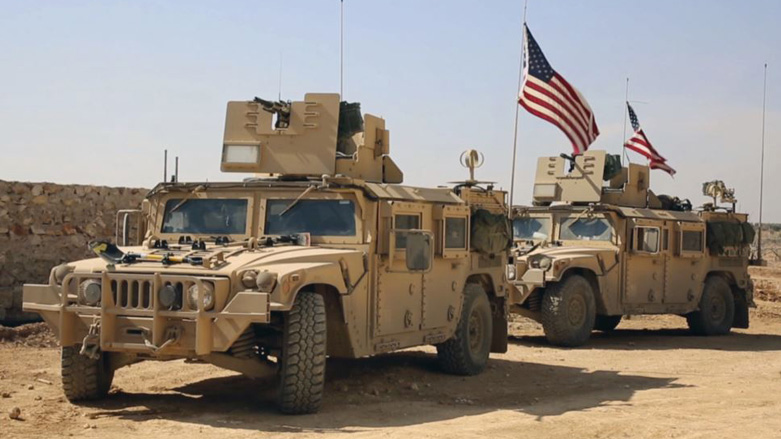US stands firm on Manbij in dispute with Turkey

WASHINGTON DC, United States (Kurdistan 24) – US officials on Thursday stood their ground against statements and threats from Turkish officials.
On Wednesday, Turkish Foreign Minister Mevlut Cavusoglu disputed State Department Spokesperson Heather Nauert’s statement the day before that “no agreement” had been reached between the two countries over the Syrian city of Manbij.
Cavusoglu acknowledged that there may not have been an “agreement,” but, there was an “understanding.”
Asked on Thursday if there was an “understanding,” Nauert dismissed the Foreign Minister’s statement as “splitting hairs.”
“Our talks with the Turkish Government are ongoing,” she said. “Those talks have not been concluded at this point.”
Cavusoglu also threatened military action against Manbij and other areas held by the Kurdish-led Syrian Democratic Forces (SDF), the primary US ally in the fight against the Islamic State (IS) in Syria.
Turkey considers the People’s Protection Units (YPG), the leading component of the SDF, to be terrorists. “If this plan is not realized, the only option left will be clearing away terrorists,” Cavusoglu said. “This is not just valid for Syria, but also for Iraq.”
Asked for a response to Cavusoglu’s statement, Nauert essentially repeated what the State Department had said on Tuesday.
“US forces are located in Manbij,” Nauert said. “We have made it very clear with the Turkish Government that we have a right to defend ourselves, the US, along with its coalition partners on the ground.”
“We have no intention to leave, but beyond that, I’d have to ask you to talk to [the Defense Department],” she said.
Contacted by Kurdistan 24, Pentagon spokesman, Eric Pahon, essentially repeated what the Pentagon had said on Monday: “Coalition forces are currently present in the vicinity of Manbij,” where they support “the local civil council.”
“Due to operational security considerations, we don't announce the movement of military forces,” Pahon stated.
So despite the harsh words from Ankara, the US position has not shifted in any significant way.
That position, as stated on Monday and Tuesday, prompted Cavusoglu’s remarks and drew harsh words from President Recep Tayyip Erdogan as well.
“They reportedly won’t get out of Manbij. You have no right to be there in the first place,” Erdogan said on Wednesday. “They are jabbering about the next targets of our operations.”
On Thursday, US President Donald Trump held a phone conversation with Erdogan, and the White House released a brief read-out of their discussion.
The two leaders had spoken “to reaffirm the importance of strong relations between the United States and Turkey” and “to exchange views on regional developments.” They also “committed to continue efforts to intensify cooperation” and “address the concerns of both countries,” the White House summary read.
Nauert rebutted suggestions that the statement’s terseness suggested that tensions continued, as she affirmed that “delicate” issues would not necessarily be included in such a summary.
Turkish airstrikes on Thursday in the Kurdistan Region, targeting the PKK (Kurdistan Workers’ Party), killed four young Kurds and prompted protest from both the Kurdistan Regional Government (KRG) and Iraq’s Foreign Minister.
“Any military activity in Iraq should be coordinated with the Government of Iraq,” a State Department official responded, referring journalists to Baghdad and Ankara for any further comment.
Baghdad’s recent reopening of Kurdish airports to international traffic has raised the question of whether visitors with US and EU passports will be able to continue to travel without visas to the Kurdistan Region or whether they will need visas issued by Iraq. Iraq’s Interior Ministry, which issues visas, is headed by a senior figure of the Badr Organization, which has ties to Iran going back over three decades—to the 1980s and the Iran-Iraq War.
Iran exercises considerable influence over the interior ministry, raising the prospect that requiring Iraqi visas for travel to the Kurdistan Region would give Tehran the ability to control who visits there.
Asked by Kurdistan 24 whether the State Department had any comment about the possible new procedures and the leverage that could well give Tehran, Nauert declined to respond, saying that the matter was still “hypothetical.”
Editing by Nadia Riva
